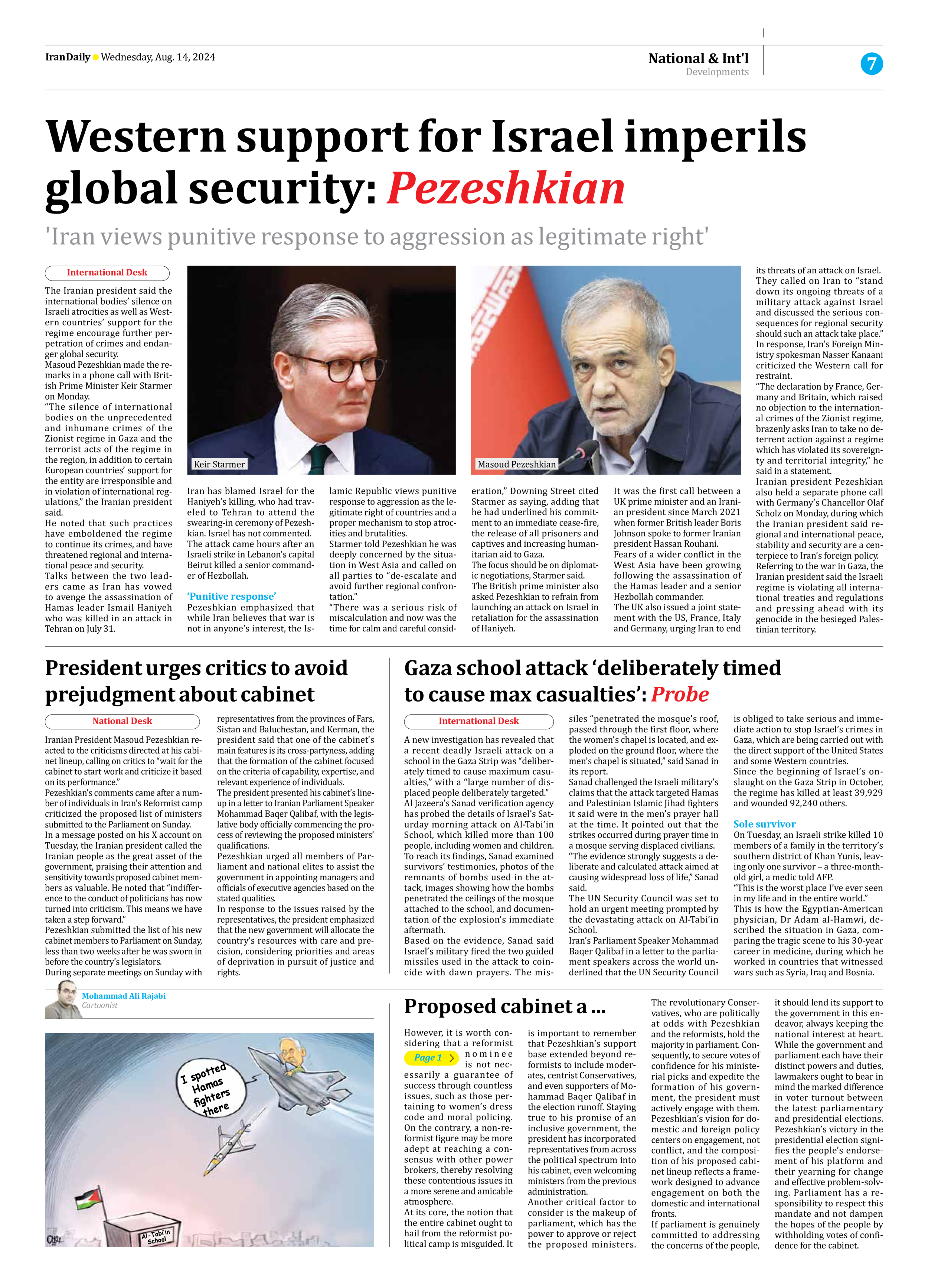
Gaza school attack ‘deliberately timed to cause max casualties’: Probe
A new investigation has revealed that a recent deadly Israeli attack on a school in the Gaza Strip was “deliberately timed to cause maximum casualties,” with a “large number of displaced people deliberately targeted.”
Al Jazeera’s Sanad verification agency has probed the details of Israel’s Saturday morning attack on Al-Tabi’in School, which killed more than 100 people, including women and children.
To reach its findings, Sanad examined survivors’ testimonies, photos of the remnants of bombs used in the attack, images showing how the bombs penetrated the ceilings of the mosque attached to the school, and documentation of the explosion’s immediate aftermath.
Based on the evidence, Sanad said Israel’s military fired the two guided missiles used in the attack to coincide with dawn prayers. The missiles “penetrated the mosque’s roof, passed through the first floor, where the women’s chapel is located, and exploded on the ground floor, where the men’s chapel is situated,” said Sanad in its report.
Sanad challenged the Israeli military’s claims that the attack targeted Hamas and Palestinian Islamic Jihad fighters it said were in the men’s prayer hall at the time. It pointed out that the strikes occurred during prayer time in a mosque serving displaced civilians.
“The evidence strongly suggests a deliberate and calculated attack aimed at causing widespread loss of life,” Sanad said.
The UN Security Council was set to hold an urgent meeting prompted by the devastating attack on Al-Tabi’in School.
Iran’s Parliament Speaker Mohammad Baqer Qalibaf in a letter to the parliament speakers across the world underlined that the UN Security Council is obliged to take serious and immediate action to stop Israel’s crimes in Gaza, which are being carried out with the direct support of the United States and some Western countries.
Since the beginning of Israel’s onslaught on the Gaza Strip in October, the regime has killed at least 39,929 and wounded 92,240 others.
Sole survivor
On Tuesday, an Israeli strike killed 10 members of a family in the territory’s southern district of Khan Yunis, leaving only one survivor – a three-month-old girl, a medic told AFP.
“This is the worst place I’ve ever seen in my life and in the entire world.”
This is how the Egyptian-American physician, Dr Adam al-Hamwi, described the situation in Gaza, comparing the tragic scene to his 30-year career in medicine, during which he worked in countries that witnessed wars such as Syria, Iraq and Bosnia.







